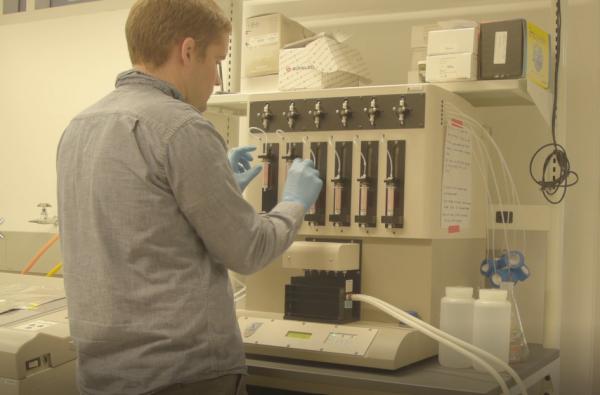Study says water filters may not block some harmful compounds
By David Boraks | North Carolina Public Radio | February 7, 2020

Read the full article by David Boraks (North Carolina Public Radio)
“There’s lots of concern these days about new and unregulated chemicals in drinking water across North Carolina. A new study from Duke and North Carolina State universities finds many home water filters may not be protecting you from these compounds.
Researchers reached that conclusion after they tested drinking water at 73 homes in the Raleigh-Durham and Wilmington areas for toxic compounds known as perfluoroalkyl substances, or PFAS. Water samples were collected from refrigerator-door filters, faucet and under-sink filters, water pitchers, and more expensive whole-home filters.
‘And what we found is that the level of removal efficiency was really variable, not consistent at a wide range in the percent removal that we measured. On average it was about half of the PFAS that was removed,’ said Heather Stapleton, an environmental science professor at Duke University’s Nicholas School of the Environment.
That’s true for all filter types except under-the-sink, reverse-osmosis filters, which can remove up to 95% of PFAS, Stapleton said. That’s the best option, and the only type with a membrane, or physical barrier, she said.
The study was published Wednesday, Feb. 5, in the peer-reviewed Environmental Science & Technology Letters. Nick Herket, a post-doctoral researcher in Stapleton’s lab, was the study’s lead author.
The investigation was prompted by worries about PFAS – and Stapleton’s curiosity about the water and refrigerator filter in her own home. After a 2017 test, she said, ‘The levels were just higher than I was expecting. I was really surprised by them. So I was really curious to understand A, where they were coming from in the drinking water and B, could we understand how well home filters could remove PFAS,’ she said Wednesday.
PFAS can cause cancer, thyroid disease and other illnesses. The compounds often leak from factory wastewater and chemical storage sites and wind up in ground water or water treatment plants. High levels of one such chemical, GenX, have been found in the Wilmington area…”
This content provided by the PFAS Project.
Location:
Topics: